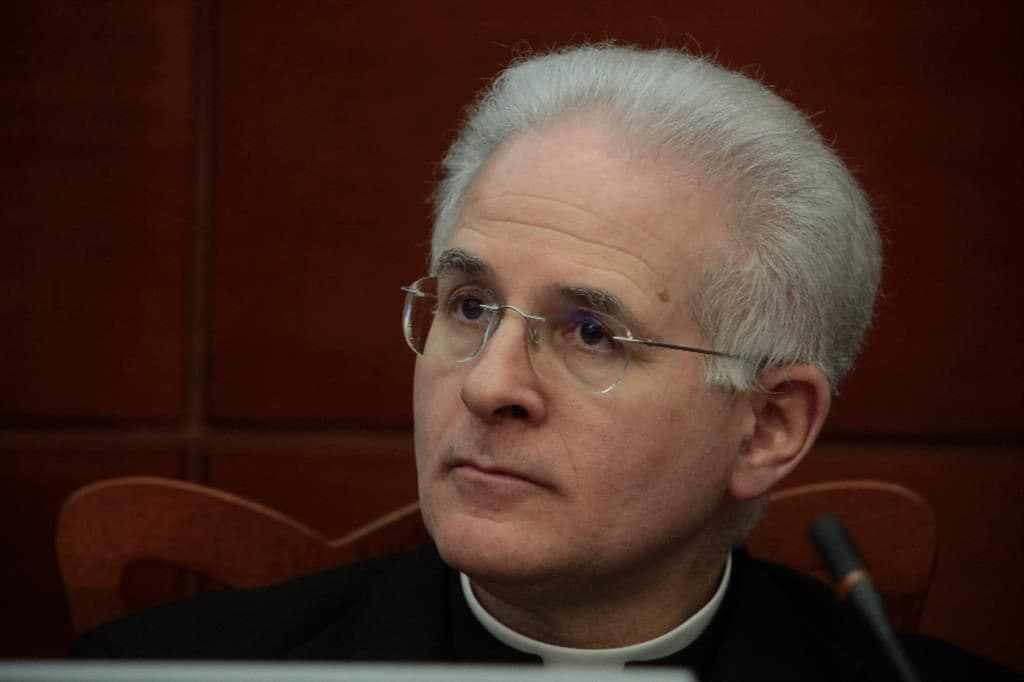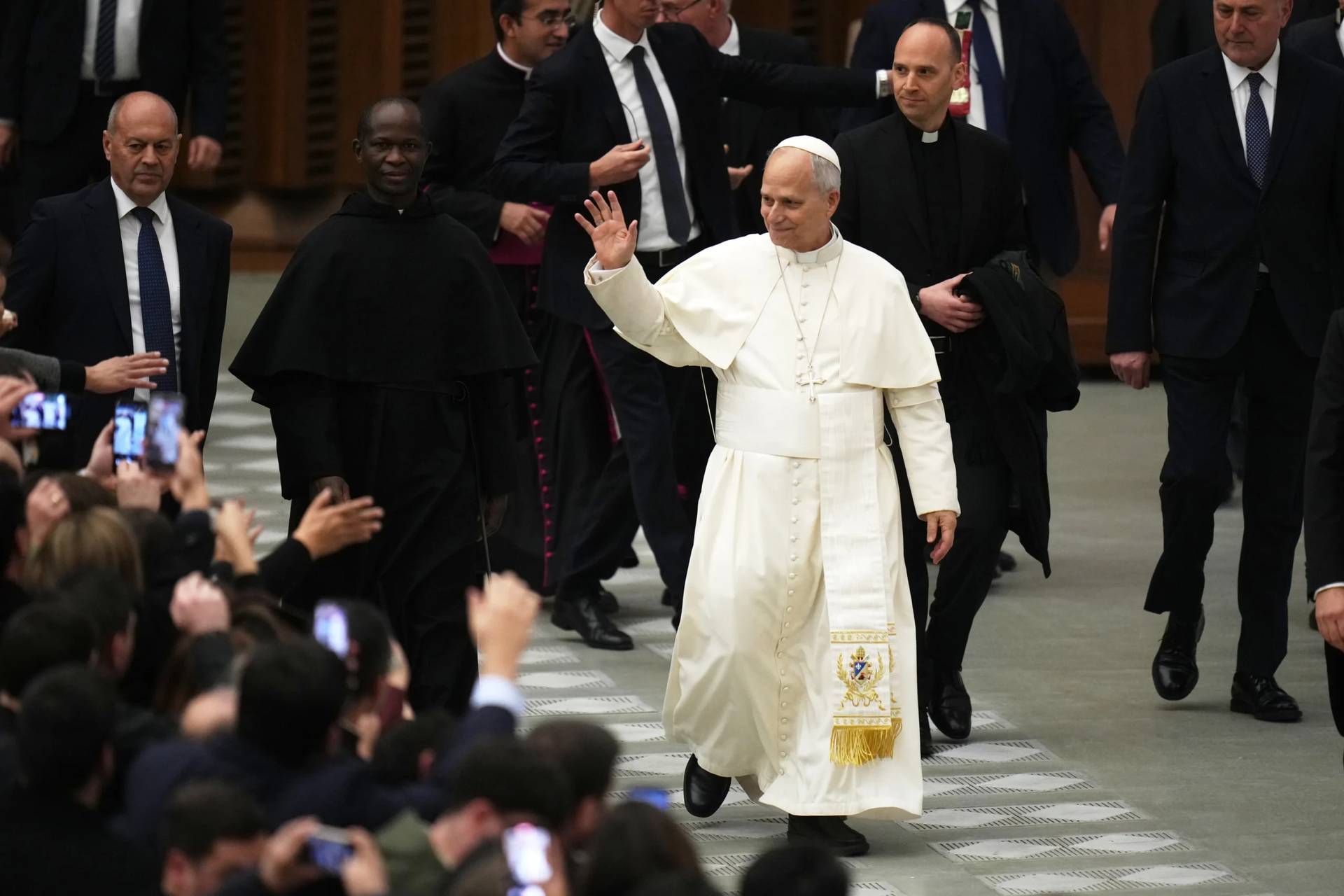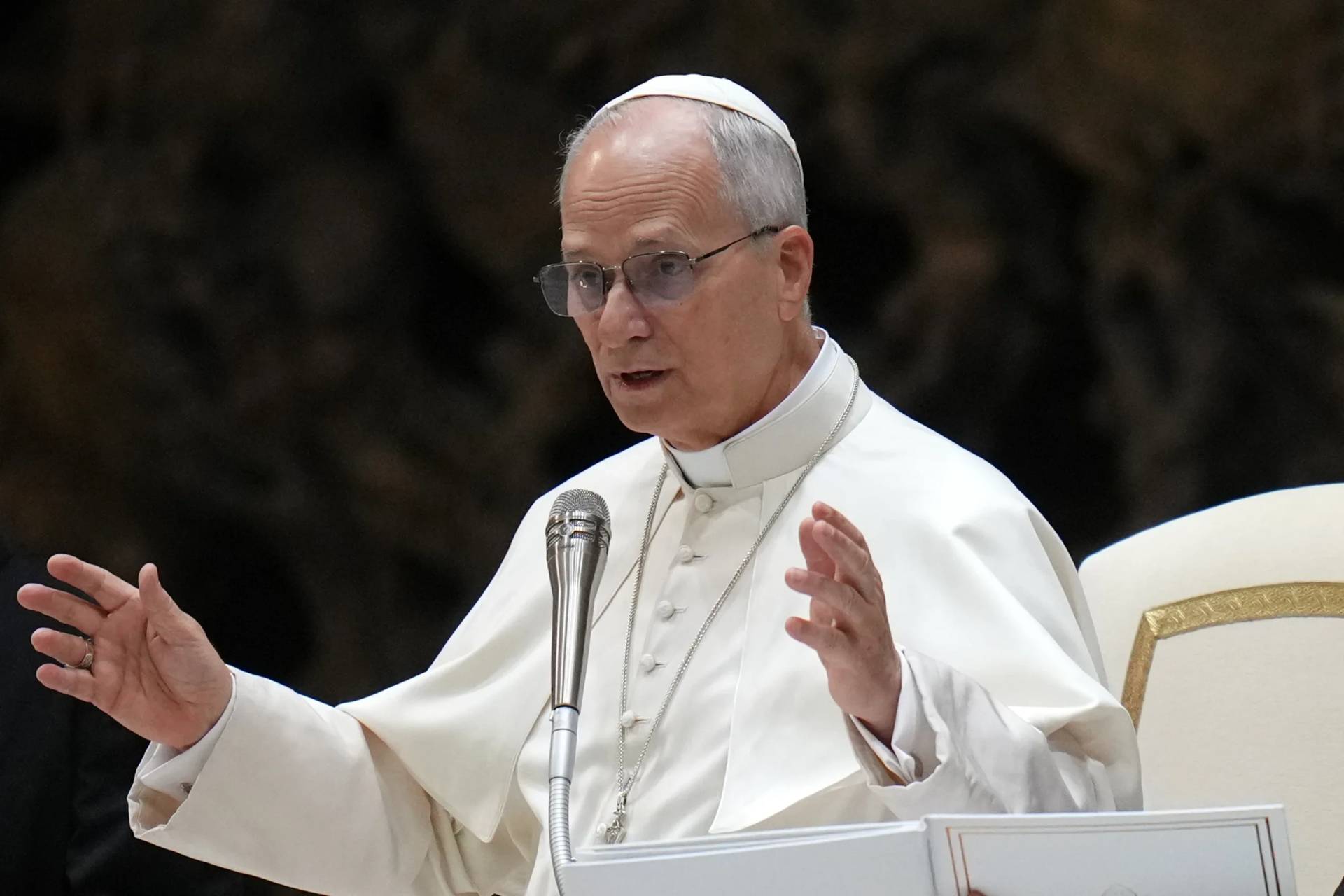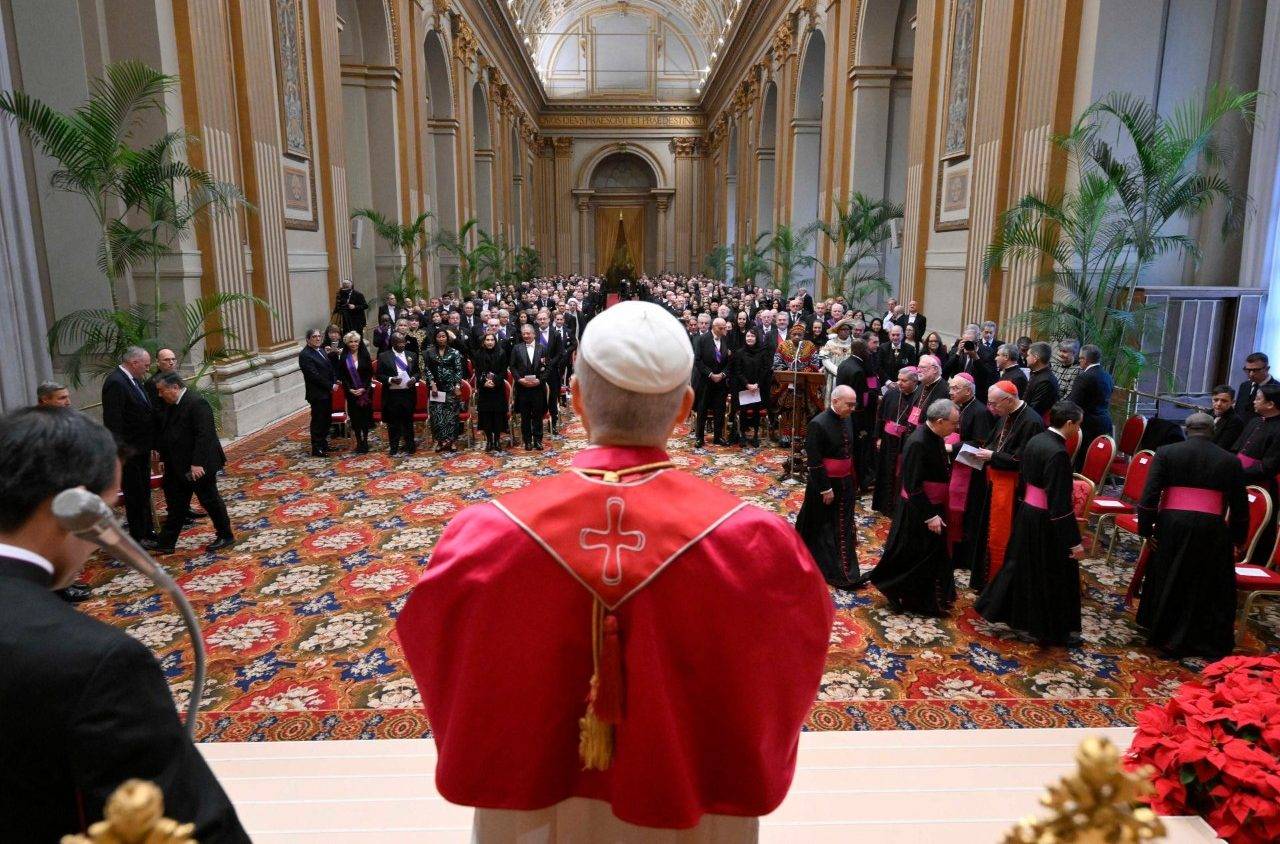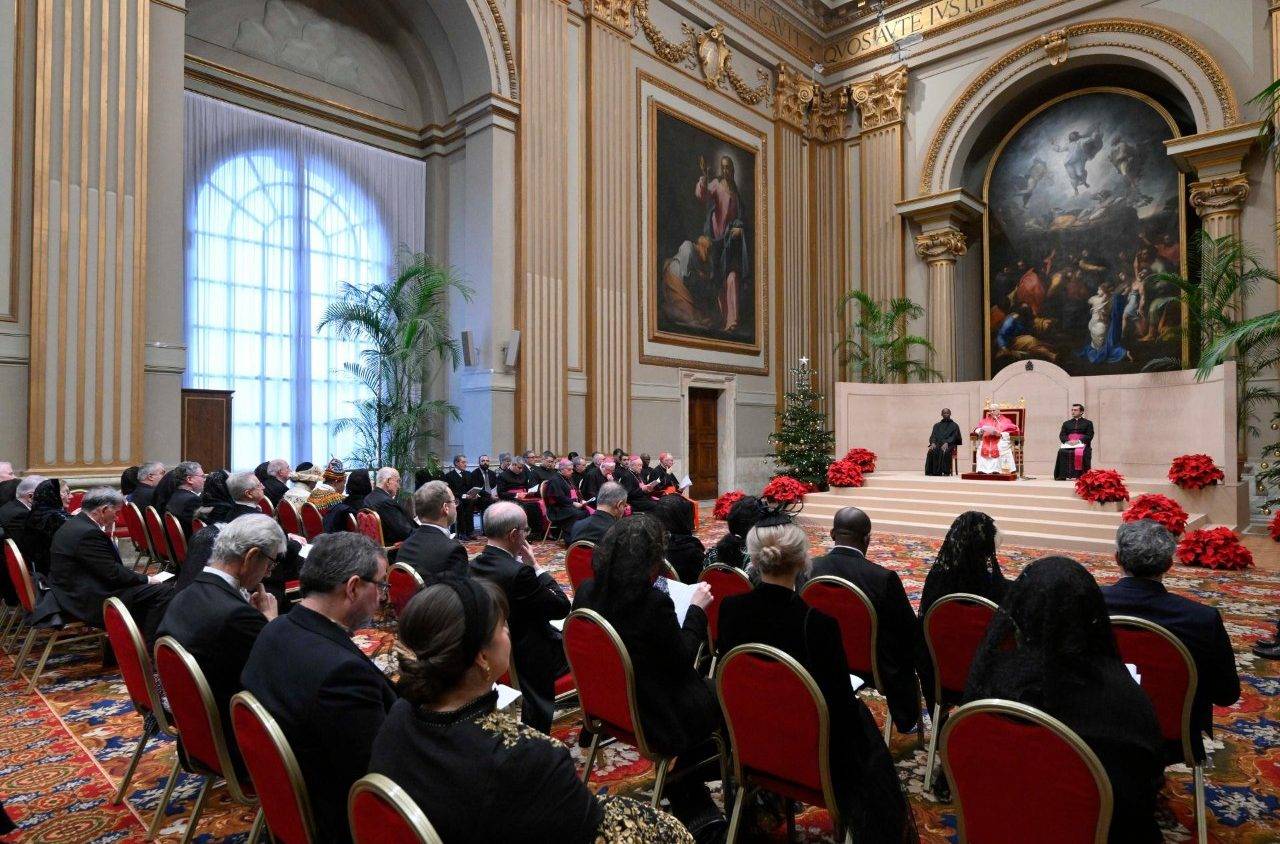ROME – When the U.S. bishops elected a center-right prelate and protégé of an influential conservative Italian cardinal as their president last November, it was framed in much reporting and commentary as a protest vote against Pope Francis.
“Bishops elect anti-Francis archbishop as president,” was how the National Catholic Reporter headlined an editorial blasting the choice of Archbishop Timothy Broglio, while Patheos asked, “Did the Bishops Just Stick Their Collective Thumb in the Pope’s Eye?”
Coverage at the time also noted Broglio’s background as a former aide to Cardinal Angelo Sodano, the Vatican’s longtime Secretary of State under Pope John Paul II.
Yet after the European bishops did more or less the same thing yesterday – to wit, elect a moderate-to-conservative figure who rose through the ranks under the patronage of a well-known conservative Italian cardinal – there’s been no such spin.
That’s despite the fact that the contrast between the outgoing president of the Commission of the Bishops’ Conferences of the European Union (COMECE), Cardinal Jean-Claude Hollerich of Luxembourg, and the new leader is especially dramatic.
In choosing Italian Bishop Mariano Crociata of the small Diocese of Latina, the European bishops, whether intentionally or not, have opted for a seemingly significant course change after five years of Hollerich, a Jesuit and a key Pope Francis ally.
Crociata, 70, a native of Sicily, was appointed a bishop by the late Pope Benedict XVI in 2007. A year later, Benedict XVI made Crociata the secretary general of the powerful Italian bishops’ conference, known by its acronym CEI. In that role, he was known as a loyal lieutenant of the powerful Cardinal Angelo Bagnasco of Genoa, the president of CEI and a figure generally seen as on the conservative side of most Catholic debates.
Famously, it was Crociata who signed an email from CEI in March 2013 erroneously congratulating Cardinal Angelo Scola of Milan on his election to the papacy: “The secretary general expresses the sentiments of the entire Italian church in welcoming the news of the election of Cardinal Angelo Scola as the Successor of Peter,” it read.
Though a corrected version was dispatched moments later, the gaffe was widely perceived as reflecting an expectation in the circles in which Crociata moved that the more conservative Scola would be chosen rather than a maverick Latin American.
When Crociata’s term as secretary general was up in September 2013, it was originally rumored that he would become archbishop of the Military Ordinariate. In the end, Francis tapped him to Latina, a mid-sized town of roughly 125,000 people about two hours south of Rome by car.
Italian observers took the move as a way to get rid of Crociata so Francis could impose his own leadership at CEI. Playing with the time-honored Latin expression promoveatur ut amoveatur, “to promote in order to remove,” some wags opined the transfer to Latina was a case of amoveatur without promoveatur.
In the decade since, Crociata for the most part has maintained a low profile. Nothing has really changed his basic reputation, but neither has he ever associated himself with overt resistance to the Francis papacy. He’s even engaged in a few Francis flourishes, such as eliminating a requirement in the Latina diocese that sponsors for baptisms and confirmations must have a “certificate of worthiness,” and opening those roles to Catholics who’ve been divorced.
In 2015, Crociata was quietly elected president of a CEI commission for Catholic education. In 2017 he was named the Italian delegate to COMECE, and a year later he became one of the group’s vice-presidents.
The contrast with the high-profile Hollerich is sharp, since Hollerich is a member of the pope’s council of cardinal advisors who’s also been tapped by Francis to oversee his all-important Synod of Bishops on synodality.
How to explain the result?
Part of it may simply be that, despite his last name (crociata in Italian means “crusade”), the new COMECE leader is not seen as an especially strong personality who creates divisions, but a relatively quiet figure unlikely to generate drama.
Beyond that, some observers detect a statement in the choice of Crociata, perhaps one quietly encouraged by influential conservative European prelates such as Cardinals Péter Erdő of Hungary, Wim Eijk of the Netherlands and Gerhard Müller of Germany.
According to this reading, the election of Crociata would serve a dual purpose – first, to take a firmer stance now against an EU moving in an increasingly secular direction on matters such as gender and gay rights, and, second, to help position the European positions in a more conservative stance vis-à-vis the next conclave.
In any event, the relatively blasé media reaction to Crociata’s election, in contrast to that of Broglio in the U.S. five months ago, is also a lesson in the power of narrative.
Among pundits and reporters, the American bishops typically are seen as a bastion of resistance to the progressive reform agenda of Pope Francis, so virtually anything they do will be spun as a major act of defiance. The Europeans, by way of contrast, generally are seen as allies of the pope – or, if anything, even more liberal than he is, as reflected in the results of the recent German “synodal path.”
It does not come naturally, therefore, to many church-watchers to conclude that the Europeans may just have followed the American path – to the extent, that is, that either Broglio or Crociata genuinely represent a challenge to the Francis papacy, as opposed to simply being expressions of the unity-in-diversity that’s always been part of the Catholic story.
